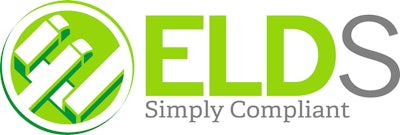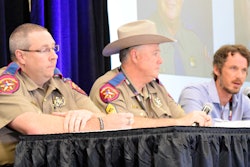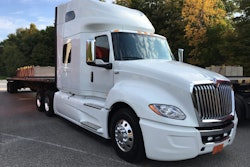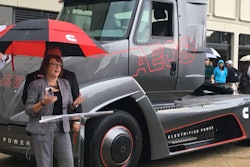
Want E-logs that you can edit and add driving time?
The email was sent by ELD Solutions, which announced a product in May that meets the ELD specifications from the Federal Motor Carrier Safety Administration. The email explained that by using the “AOBRD Mode” a carrier could edit driver logs and not see the original log. “We only store the edited version and not the original log,” the email said.
AOBRD stands for Automatic On-Board Recording Device, otherwise known as FMCSA 395.15, which specifies the conditions by which fleets can voluntary use e-logs in lieu of paper logbooks.
The reader, who wished to remain anonymous, had this to say about the email he received and forwarded to CCJ:
“As a small carrier who strives for compliance and agrees with the ELD mandate (for the most part), I feel that the ELD mandate only makes sense if the system is an honest one. If drivers or companies are allowed to violate the HOS while technically in ‘compliance,’ then they would gain an unfair competitive advantage.”
ELD Solutions, based in Nashville, Tenn., is apparently trying to sell fleets on what it believes is a unique feature in its application – the flexibility to use the AOBRD version of its electronic logging application or the ELD version (FMCSA 395.16).
Enforcement of the ELD rule begins on December 18, 2017, but the rule contains a provision that allows carriers to wait until December 2019 to comply with the new ELD standard if they have implemented AOBRD-compliant technology before then. By 2019, all carriers will be required to use ELD-compliant devices and applications.
According to information on its website, the Federal Motor Carrier Safety Administration allows fleet managers to edit drivers’ records of duty status from an AOBRD “to accurately reflect the driver’s activity.”
The manager must include an explanation of the mistake in the remarks section of either the original or amended record of duty status, the agency says, and “both the original and amended record of duty status must be retained by the motor carrier.”
According to the email from ELD Solutions, its AOBRD Mode does not store the original log. CCJ sent the exact wording used in the email to FMCSA spokesperson Duane DeBruyne for clarification. He confirmed that editing is allowable under the AOBRD rule, but did not implicate ELD Solutions for any wrongdoing.
Under the new ELD rule, fleet managers will be able to edit driver logbooks for accuracy, but the main difference is that drivers must be given a chance to accept or reject their edits.
CCJ contacted Pavel (Paul) Borisyuk, the salesperson for ELD Solutions who sent the email, to ask for clarification on how the system works for editing driver logs to add more drive time.
“It gives (motor carriers) more flexibility to adjust the logs,” he said. When asked to elaborate, he said he would rather explain it to motor carriers rather than to a media outlet.
“Most people don’t know they can switch versions. We can provide two modes under one hardware so they can switch,” he said. “For more flexibility they can run under the AOBRD Mode. Most people want more room to edit logs.”











